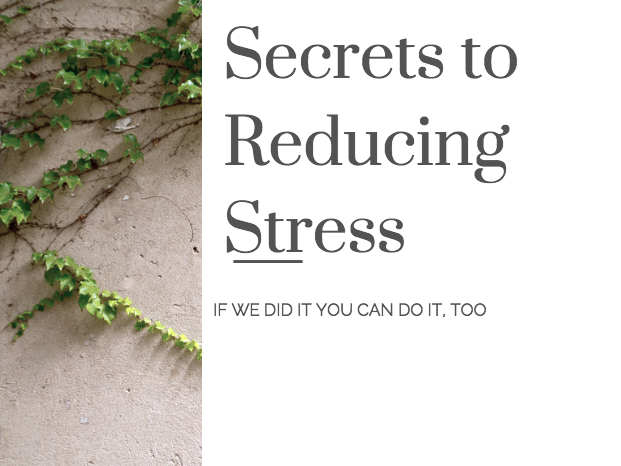Stress. We all have it; few of us actually want it. But it’s just so hard to make it go away. What with work, family obligations, and the million emails that somehow keep showing up overnight in your inbox, stress is probably one of the top concerns anybody in America deals with today.
At today’s GovLoop staff meeting, we talked about practical, concrete tips we use to reduce our own stress. Now, GovLoop is a pretty fun place to work, and we try to keep bad stress to a minimum, but there are definitely times we’re overwhelmed, overbooked, and generally sort of just freaking out. But after this week’s meeting, we now have an arsenal of tips we can now use to beat back stress — and we wanted to share them with you. (P.S. And as we found out in the meeting today, doing office desk yoga is a great start.)
Head to the comments to share your own ways for reducing stress.
…Til you make it. “Fake it. If you act like you aren’t stressed, you’ll eventually feel less stressed. Half the battle is not letting stress get the best of you and your attitude.” – Hannah, Research Analyst
Get chatty. “I am a social person, so when I am stressed I need to vent. So I talk to my friends and co-workers. A brief chat can calm me down considerably.” – Emily, Online and Events Editor
File away (or flip some pages). “I organize my inbox . Filing, responding to folks and deleting emails is an easy (and relatively quick way) to make me feel more organized. All about quick wins! I also like to do something mindless – I like looking at People magazine (or something equally fun and non-work related) for a few minutes to take my mind off of work/the stress point.” – Amy, Senior Client Engagement Specialist
Take a step back. “Keep perspective and look at big picture. That helps you zoom out of what the issue is, gain a better understanding of how to address it, and makes you really think about the urgency of the issue.” – Pat, Senior Research Analyst
Zone out. “I listen to a meditation mix that I use for yoga/mediation and it signals to my brain that its time to tune in on what I need to do and let everything else go. My breathing from meditation also happens automatically from hearing the music, which is also calming.” – Rachel, Marketing Fellow
Turn up the tunes. “Epic musical scores motivate me to work harder and with more focus, which may sound more stressful initially, but results in meeting or beating deadlines, which is one of my personal biggest stressors.” – Tommy, Junior Designer
Try Tactical Breathing. “I do Tactical Breathing (in 4 secs. hold 4 secs. out 4 secs.) This is a great way for me to reboot my brain when i’m in a stressed, and I can do it totally inconspicuously in pretty much anywhere. When I’m stressed my fight or flight reflex causes me to breathe more heavily, and this kind of intentional slow breathing reverses that process, basically tricking my brain. It’s pretty cool.” – Jake, Design Fellow
Do yoga – but don’t forget to caffeinate. “Doing yoga (or other type of exercise consistently) helps release endorphins which leads to happiness. In yoga, they coach you on not being mean, taking things in, relaxing (breathing exercises), understanding other viewpoints, taking steps outside yourself which are all great to calm your reactions under stress.
Also, take a caffeine break. We used to do ‘coffee credit card roulette’ at my old job. Was a fun way to get out of the office and add some excitement. Usually you would only have to pay once a week (so it evens out) but it feel awesome when you get free coffee! Plus it’s great bonding with coworkers.”
Have faith. “Mine are using Trello lists, listening to 2cello music, and belief it will all work out.” – Megan, Senior Client Success Consultant & Event Director
Take a break. “Stepping away from the computer for even just a few minutes always helps.” – Ryan, E-Learning Fellow
Mix it up. “My tips are 1. To-do Lists 2. Pump up rap music 3. Step back – what are the highest impact things I can do today? Items with most leverage?And I make sure to take a walk with my son each night without my phone.”
Make a list. “I like making lists of tasks/responsibilities and checking them off when they’re complete. This helps me visualize and prioritize what I have to do, and then it feels great to visibly cross out a task when it’s done.” – Matt, Research Fellow
Head to nature. “To do lists are my #1 way of dealing with stress – creating order helps me feel like I have control in a chaotic universe. But if I could, I would spend every weekend hiking or camping. Every time I come back from a nature-filled trip, I’m incredibly calm.” – Catherine, Director of Content
